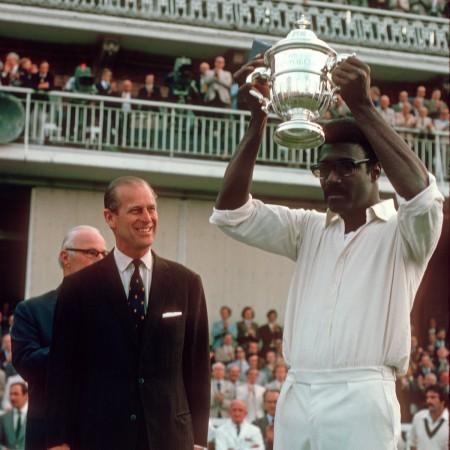
The upcoming ICC 2019 World Cup will be the 12th edition of one-day international cricket's biggest event. 11 previous chapters have produced many memorable moments as well as some really disappointing ones. This 12th episode of the event promises to be one of the best, if the weather doesn't play spoilsport – a possibility that can never be ruled out in England.
The Final of this mega event has seen many different types of contests and performances. From some utterly sublime to those extremely anti-climactic. The 11 Finals have not always lived up to the expectations but have often produced great displays of batting and bowling skills.
As we get ready for the latest edition of ODI cricket's showpiece event, let's walk through the pages of history and remember the most important features of the Finals of all 11 previous World Cups. In the first part we look at the decider of the very first World Cup.
1975 – Australia vs West Indies (Lord's)
When the first edition of World Cup was played, most teams were not sure how to approach the tournament. It may not have been seen as that important also. West Indies, then starting to emerge as a powerful team and developing a formidable pace attack took on a strong Australian side in the Final at Lord's. A large crowd of West Indian supporters, largely immigrants from the Caribbean, descended on cricket's most hallowed arena to support their team.
West Indies batted first and the most important moment of the Final came when Clive Lloyd was dropped off the bowling of Dennis Lillee on 26. This mistake proved to be very costly and the West Indian skipper, in the words of his Australian counterpart, Ian Chappell, 'caned' Australia. At a time when Sunil Gavaskar was happy to bat out all 60 overs of an ODI to score 36 not out, Lloyd smashed 102 off just 85 balls. West Indies ended up with 291/8.
The Caribbean side didn't have their famed four-man pace attack then. The only prominent name in the bowlers list was Andy Roberts. But a man destined to become one of the greatest players of all time made a huge difference. Except that he did it in a different capacity than the one he is known for. Vivian Richards played a key role in Australia's inability to chase the target by producing three run-outs, including a brilliant one of Ian Chappell, the leading run-scorer for his team in that match. At a time when fielding was largely an afterthought, Richards showed his athleticism to great effect. Ian Chappell was left gobsmacked by the fact that Richards could even get to the ball which he thought was easily going to the boundary.
At 233/9, it seemed all over for Australia but then, the legendary duo of Lillee and Jeff Thomson started resisting with the bat and suddenly, Australia seemed to be in with a chance. But that was snuffed out by, quite aptly, another run-out, the fifth in the Innings. With Australia falling short by 17 runs and 8 balls remaining in the innings, West Indies became the first World Champions in the sport, a harbinger of things to come.

















